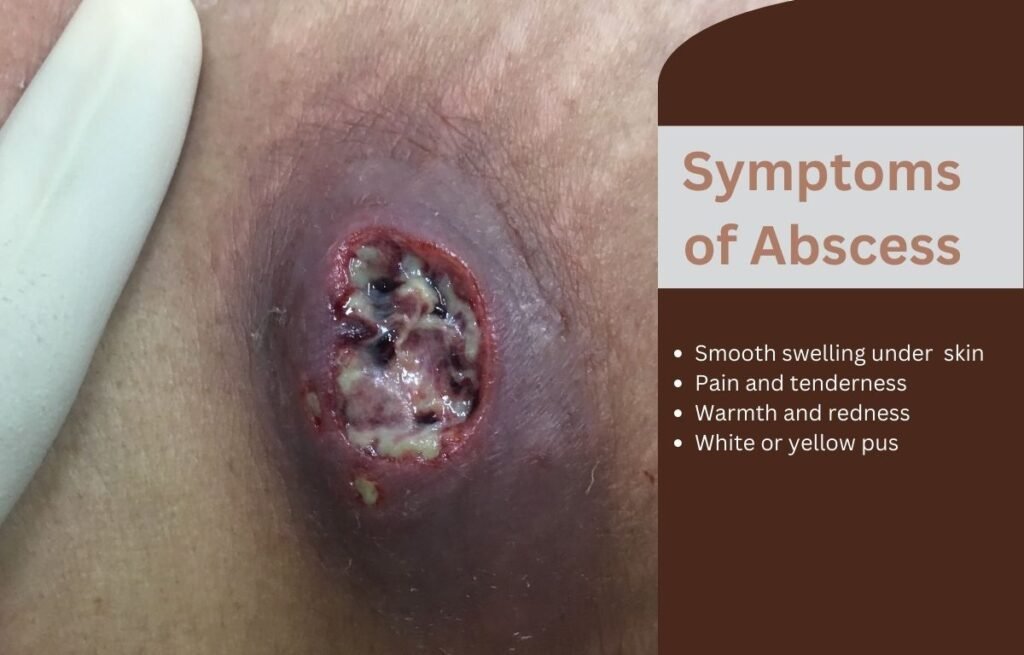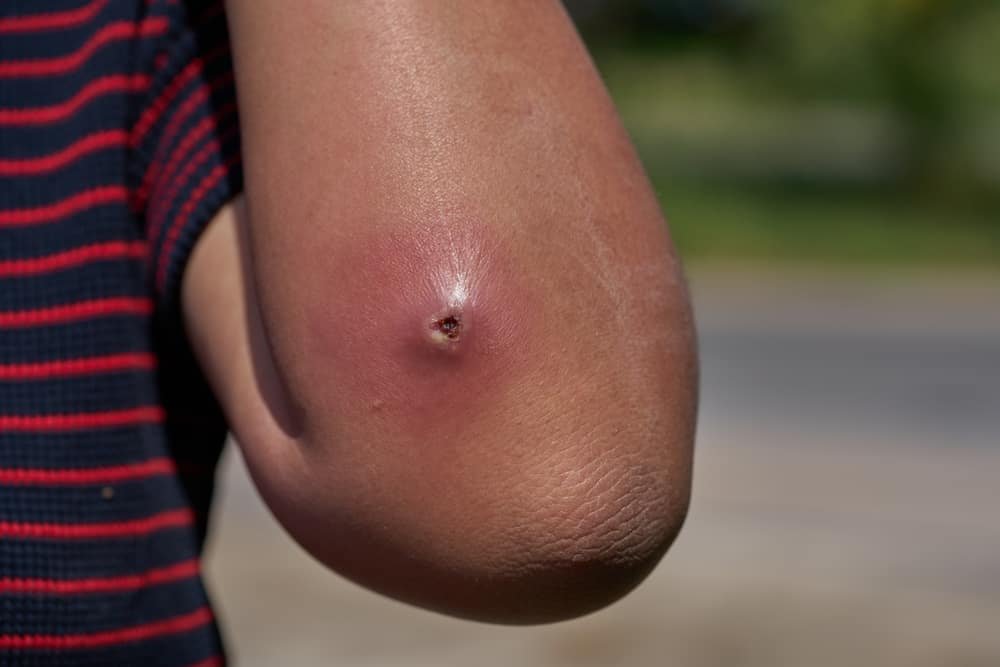What is Abscess? Know its Causes, Symptoms and Remedies
What is Abscess?
Abscess is nothing but a raised lump on the skin, which is pink and dark red in color, which can be easily felt by touching. It is an abscess, inside which pus or pus is filled.
An abscess can occur anywhere on your body. But it usually occurs in your armpit (axilla), around the private part in females (Bartholin gland abscess), the base of your spine (pilonidal abscess), and around your waist.
How common is abscess?
Contact your doctor for more information on this. Call – 8010931122
What are the symptoms of abscess?

- Boils are often very painful and raised bumps of red color, which feel hot and hard to the touch.
- As the boils grow, their tip becomes sharp, on which pus comes out when it opens.
- Without care, it gets worse, allowing the infection to spread to skin tissue and blood.
- If the infection has spread deep into the tissue, you may also develop a fever and feel sick.
It is difficult to identify an abscess inside the body unless it is visible outside, but some symptoms are visible. These symptoms include-
- Pain in the infected area
- High temperature (increased body temperature)
- Feeling unwell (feeling any kind of discomfort related to the body)
In addition to the symptoms mentioned above, other symptoms may also occur. If you notice any of these symptoms, contact your doctor. Contact Us – +91-8010931122
When should I see my doctor?
If you think you may have an abscess, see your doctor. He examines your skin abscess and may refer you to the hospital if you have internal abscesses.
Several tests exist to diagnose an abscess, depending on where it is located.
Cause
What is the cause of abscess?
Inflammation of the skin pores occurs due to blockage in oil glands and sweat glands. When it comes in contact with bacteria, the body’s immunity tries to kill these bacteria. This leads to an inflammatory reaction, which leads to an abscess.
Inside the abscess is pus, dead cell bacteria and pus. Its infection area starts increasing and tension arises in the skin, due to which swelling comes around. Pain is caused by swelling and pressure.
Risk factor
When is my risk for boils increased?
Those whose immunity is weak (those who have weak immunity power), they are more prone to boils. This happens because the body’s ability to fight infections is reduced.
- Having chronic steroid therapy
- Being treated with chemotherapy to treat diseases such as cancer
- Having diabetes
- Having cancer
- Having AIDS
- Sickle cell disease
- Having leukemia
- Peripheral vascular disorder
- Crohn’s disease
- Ulcerative colitis
- To feel burning
- Alcohol or drug use
Other risk factors for boils include exposure to dirty environments, skin infections, poor hygiene, and exposure to people with poor circulation.
Diagnosis and treatment

The information given is not a substitute for any medical advice. Always consult your doctor for more details.
How are boils diagnosed?
The doctor will take a medical history and may ask you some questions:
- How long is the boil?
- Was there any injury there?
- What medicines are you taking or what kind of medicines do you use?
- Do you have any allergies?
- The doctor will examine the abscess and the surrounding area. If it is near your anus/rectum, the doctor will do a rectal examination. If it is on an arm or leg, the lymph gland will be felt in your groin or under your arm.
How are boils treated?
It is normal to have a small pustule or pimple on the skin, which shrinks, dries up and can be cured without treatment.
- However, larger boils may require treatment by a doctor.
- Doctors operate it and clean it.
- The area around the abscess is numbed.
- Although it is difficult to numb completely, anesthesia can significantly reduce the pain of this procedure.
- You may also be given sleeping or sedation medicines if the abscess is large.
- The area is covered with a sterile towel by applying an antiseptic solution.
- The doctor cleans the pus completely by making an incision in the abscess or abscess.
- After the pus is removed, the doctor applies some medicine to heal the wound, which is kept for a day or two.
- Then get home care instructions after the ointment bandage. During this, the advice given by the doctor should be followed.
- Most people get relief immediately after cleaning the boil.
- If you have severe pain afterwards, your doctor may give you painkillers for that.
Lifestyle changes and home remedies
What are the lifestyle changes or home remedies that can help prevent boils?
The following lifestyle changes and home remedies can help you deal with boils:
- Cleanse your skin regularly and maintain high genes.
- Give immediate medical attention to any wound or visit a health expert without delay.
- If you think there is some dirt in it.
- If any of the above mentioned symptoms are seen.
- If you are on steroids or chemotherapy.
If you want to know the answer to any kind of question related to abs, then it would be better to understand from the experts. Hello Health Group does not recommend any kind of medical advice, treatment or tests.
